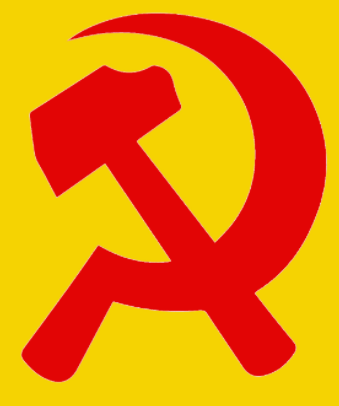Markets are inefficient and eventually monopolize and become obsolete. In low stage socialism they can be useful to develop the productive forces.
Completely untenable. Markets are not what market fanatics think they are. They aren't bazaars where crafts people sell cottage industry goods. Markets are rationing systems predicated on dynamic pricing based on supply/demand, which is predicated on scarcity which is predicated on some people going without and some people hoarding most.
Markets are internally inconsistent relying entirely on extra-market forces (the state) to enforce the conditions upon which markets rely. The contradictions of market are exactly what socialism is working to eliminate.
Markets are internally inconsistent relying entirely on extra-market forces (the state) to enforce the conditions upon which markets rely. The contradictions of market are exactly what socialism is working to eliminate.
Which is why, at best, markets should be restricted to unnecessary 'luxury' and 'leisure' sectors such as content creation, video games or art,
not left wide open to any essential sectors, such as natural resources and labor of country to exploit, let alone healthcare, housing, groceries, social media platform. etc, which we rely upon on a daily basis...
markets should be restricted to unnecessary 'luxury' and 'leisure' sectors such as content creation, video games or art,
This is mostly impossible because production of these things relies on private property of at minimum:
- the land needed to produce the things
- the land needed to store the things
- the machines needed to produce the things
- the commodities needed to produce the things
This doesn't even take into account the externalized waste stream.
Market dynamics can work for cottage industries and in fact that tends to be the only way to manage it in a world of scarcity and famine. Once subsistence requirements are met abundantly, cottage industries can choose to use markets or gifts as their mode of exchange, with gifts tending to be more sustainable. Even if you allow markets for cottage industries, you still run the risk of monopolization and exploitation and the state needs to monitor and intervene, which makes it temporary at best.
Egh, always keep planning and market sector secular/seperate from each in socialist country, a la China
You don't wanna end up like Yugoslavia..
It depends really, if you're moving from capitalist to market socialist, fine
Socialist to market socialist, oof... possible revisionism time...
Edit: and don't forget material conditions; markets would be more obsolete, under the socialist hegemony...
What exactly is the difference between market socialism and china's economic policy? Is it laissez-faire economics except everything has to be a co-op?
The public-owned planned sector, which contains most of China's essential, industrial and agricultural industries, is kept separate from the private sector,
which is unrestrained in its organization as capitalist entities...
If ye want more info, uh, https://en.prolewiki.org/wiki/Essay:Why_China_is_not_Capitalist
So no difference. China's economy is an implementation of market socialism.
It's one of them, but not a laissez-faire economy of co-ops, aight?
There is no difference, China has a market socialist system, probably the best example of such a system ever.
If the material conditions require it, we should use markets.
Otherwise, we should not.
Depends. If you mean China's model, yeah. If you mean pure market socialism as in stateless socialism with markets, no.
To clarify I mean whether or not it can achieve communism in the long run.






